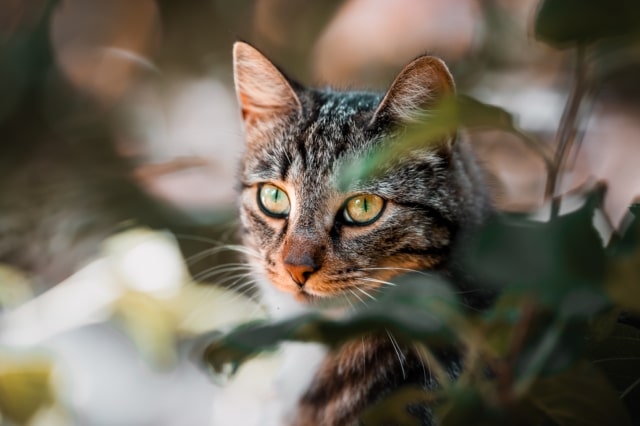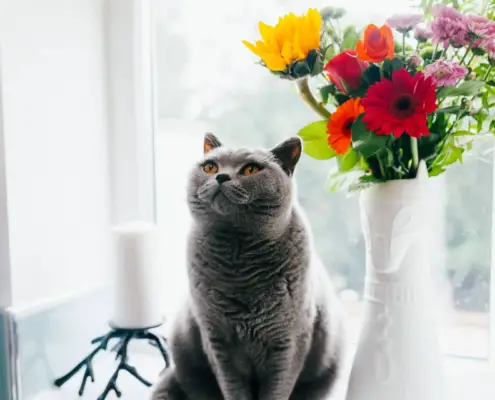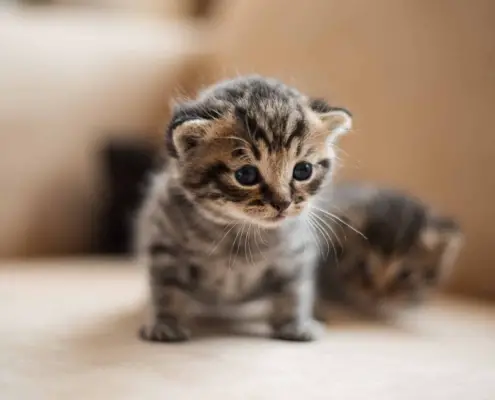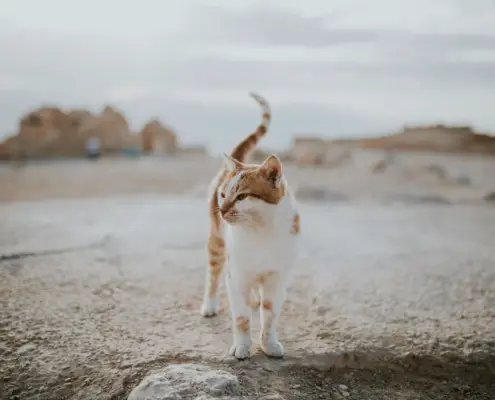
Euthanasia for cats is a sensitive and complex topic that pet owners may encounter when their feline companion reaches the end stages of their life. Understanding what euthanasia entails is crucial in making informed decisions about the well-being of your beloved pet.
Euthanasia, derived from the Greek words “eu” meaning good and “thanatos” meaning death, refers to the intentional and humane act of ending an animal’s life to alleviate suffering. While it is a difficult decision to make, it can provide a compassionate solution when a cat’s quality of life has deteriorated significantly, and medical treatment is no longer effective.
Veterinarians play a crucial role in guiding and supporting pet owners through this process. They possess the expertise to assess a cat’s condition accurately and provide professional advice on the most appropriate course of action. It is always recommended to consult with a veterinarian to discuss the options available and ensure that the decision aligns with the best interest of the cat.
Reasons for considering euthanasia for cats
There are various reasons why pet owners may consider euthanasia for their cats. The primary concern is the welfare of the feline companion, ensuring they are not suffering needlessly. Chronic and severe pain, terminal illnesses, incurable diseases, or debilitating conditions that significantly impact a cat’s quality of life are often reasons for considering euthanasia.
Additionally, old age can bring about a decline in a cat’s health and overall well-being. As cats age, they may experience a range of issues such as mobility problems, incontinence, cognitive decline, and reduced appetite. These age-related challenges, coupled with a diminished quality of life, can lead to the consideration of euthanasia.
It is important to note that each case is unique, and decisions regarding euthanasia should be made in consultation with a veterinarian who can evaluate the cat’s specific circumstances and provide professional guidance.
The ethical debate surrounding euthanasia for cats
Euthanasia for cats raises a complex ethical debate, as it involves making decisions about the life and death of a living being. Some argue that euthanasia is a compassionate act that prevents unnecessary suffering, allowing cats to pass away peacefully and without prolonged pain. They believe that it is a responsible choice to end a cat’s life when their quality of life has significantly deteriorated.
On the other hand, opponents of euthanasia argue that it is ethically wrong to intentionally end the life of a cat, as it goes against the principle of preserving life. They believe that natural death should be allowed to occur, even if it means the cat may experience prolonged suffering.
It is crucial for pet owners to consider their cat’s best interests, in terms of both physical and emotional well-being, as well as their own moral compass when grappling with this ethical debate. Consulting with a veterinarian and seeking guidance from reputable sources can assist in navigating this complex decision-making process.
The role of veterinarians in euthanasia for cats
Veterinarians play a pivotal role in the euthanasia process for cats. Their expertise and compassionate care are essential in ensuring a peaceful and dignified end-of-life experience for feline companions.
When considering euthanasia, it is crucial to consult with a veterinarian who can evaluate the cat’s condition and provide professional advice tailored to the individual circumstances. Veterinarians have the knowledge and experience to assess a cat’s quality of life, pain levels, and overall well-being. They can help pet owners understand the available treatment options, the expected outcomes, and the potential benefits and risks of euthanasia.
In addition to their medical expertise, veterinarians also offer emotional support to pet owners during this challenging time. They understand the deep bond between owners and their cats and can provide guidance on coping with grief and loss. Veterinarians may offer resources such as pet bereavement counseling or suggestions for memorializing the cat, which can aid in the healing process.
Signs that your cat may need euthanasia
Recognizing when a cat may need euthanasia is a difficult task for any pet owner. It is essential to monitor your cat’s overall well-being closely and be attentive to any signs of discomfort or distress.
Some indications that may suggest a cat is nearing the end of their life include:
- Decline in appetite and weight loss: Loss of interest in food and a noticeable decrease in weight can indicate a deteriorating health condition.
- Lack of mobility and reduced activity: Cats that can no longer move comfortably or engage in activities they once enjoyed may be experiencing significant pain or physical limitations.
- Incontinence and inability to control bodily functions: If a cat is unable to control their bladder or bowels, it can lead to discomfort and a reduced quality of life.
- Chronic pain: Cats with chronic pain may exhibit signs such as restlessness, irritability, or a reluctance to be touched or handled.
- Unresponsive to medical treatment: If a cat’s condition does not improve or continues to worsen despite medical interventions, euthanasia may need to be considered.
It is crucial to consult with a veterinarian if you observe any of these signs or have concerns about your cat’s well-being. They can assess the situation and provide guidance on the most appropriate course of action.
Making the decision: factors to consider before euthanizing your cat
Deciding to euthanize a cat is a deeply personal and emotional choice. There are several factors that pet owners should consider before making this decision:
- Quality of life: Assessing a cat’s quality of life is paramount. Consider whether the cat is experiencing pain, discomfort, or distress that cannot be alleviated through medical intervention.
- Prognosis and treatment options: Consult with a veterinarian to understand the cat’s prognosis and the available treatment options. Evaluate the potential benefits, risks, and expected outcomes of any further medical interventions.
- Financial considerations: Consider the financial implications of ongoing medical treatment versus euthanasia. It is important to ensure that the chosen course of action is sustainable and within your means.
- Emotional well-being: Reflect on your own emotional well-being and the impact of caring for a cat with a declining quality of life. It is essential to consider the toll it may take on your mental health and overall well-being.
- Support network: Evaluate the support network available to you during this challenging time. Seek out friends, family, or support groups who can provide emotional support and understanding.
Ultimately, the decision to euthanize a cat should be made in consultation with a veterinarian. They can provide professional guidance, helping you navigate the complex emotions and considerations involved in this difficult decision.
The euthanasia process for cats
The euthanasia process for cats is designed to be as peaceful and painless as possible, ensuring a dignified end-of-life experience. It typically involves the following steps:
- Consultation with a veterinarian: The process begins with a consultation where the veterinarian assesses the cat’s condition, explains the euthanasia procedure, and addresses any concerns or questions from the cat owner.
- Administration of sedation: To ensure the cat is calm and relaxed, a mild sedative may be administered. This sedation helps to alleviate anxiety and discomfort, ensuring a more peaceful transition.
- Euthanasia injection: Once the cat is sedated, a veterinarian will administer an intravenous injection of a euthanasia solution. This solution is painless and induces a quick and peaceful passing.
- Aftercare options: Following the euthanasia procedure, pet owners have the option to choose from various aftercare options. These may include cremation, burial, or communal cremation with no ashes returned.
It is essential to discuss aftercare options with the veterinarian prior to the euthanasia procedure to ensure that the chosen option aligns with your preferences and beliefs.
Coping with the loss: grieving and memorializing your cat
Losing a beloved cat can be an emotionally challenging experience. Grief is a natural response to the loss of a pet, and it is important to allow yourself time and space to grieve.
There are various ways to cope with the loss and honor the memory of your cat:
- Allow yourself to grieve: Give yourself permission to experience the full range of emotions that come with loss. It is normal to feel sadness, anger, guilt, or even relief. Seek support from friends, family, or pet bereavement counselors who can provide understanding and comfort during this time.
- Create a memorial: Consider creating a memorial for your cat to honor their memory. This can be as simple as creating a photo album or as elaborate as planting a garden in their honor. Choose a memorial that feels meaningful to you and reflects the special bond you shared with your cat.
- Join support groups: There are numerous online and in-person support groups dedicated to pet loss and bereavement. Connecting with others who have experienced similar loss can provide comfort and understanding.
- Consider pet bereavement counseling: If you find it challenging to cope with the loss on your own, seek out professional pet bereavement counseling. These counselors specialize in helping individuals navigate the complex emotions and grief associated with pet loss.
Some resources that may be useful include:
- Lap of Love
- APLB
- Animal Welfare Association New Jersey Community Outreach for Pet Bereavement (Virtual or Physical)
Remember that grieving is a highly individual process, and there is no right or wrong way to mourn the loss of a pet. Take the time you need to heal, and know that it is okay to seek support during this difficult period.
Alternatives to euthanasia for cats
While euthanasia may be the most compassionate choice in some cases, there are alternatives that can be explored depending on the cat’s condition and circumstances. These alternatives may include:
- Palliative care: Palliative care focuses on providing comfort and pain management for cats with terminal illnesses or severe health conditions. It aims to improve the cat’s quality of life and minimize suffering without pursuing aggressive treatments.
- Hospice care: Similar to palliative care, hospice care emphasizes providing comfort and support during the end stages of a cat’s life. It focuses on pain management, emotional well-being, and ensuring a peaceful environment.
- Natural death: In some cases, allowing a cat to pass away naturally may be an option. This approach involves providing supportive care, such as pain management and ensuring the cat’s comfort, as they approach the end stages of their life. It is essential to consult with a veterinarian to ensure the cat’s welfare and well-being during this process.
It is important to note that these alternatives may not be suitable for every cat’s condition. Consulting with a veterinarian is crucial in determining the most appropriate course of action based on the specific circumstances and needs of the cat.
Compassion and care in end-of-life decisions for cats
Making end-of-life decisions for a beloved cat is never easy, but it is a responsibility that pet owners must face with compassion and care. Understanding euthanasia, considering the cat’s well-being, and consulting with a veterinarian are essential steps in this challenging process.
By being attentive to the signs that may indicate a cat’s need for euthanasia, carefully considering the factors involved, and seeking professional guidance, pet owners can make informed, responsible decisions that prioritize the welfare of their feline companions.
Remember that the decision to euthanize a cat is deeply personal, and there is no one-size-fits-all answer. Each cat’s circumstances are unique, and it is crucial to approach the decision-making process with empathy, love, and a commitment to providing the best possible care, even during the most difficult times.
If you are facing the difficult decision of euthanasia for your cat, consult with a veterinarian who can provide guidance and support tailored to your cat’s specific needs and circumstances.
If you enjoyed my article, I would appreciate you sharing it with your network.

Sima Ndlebe
Sima writes for CatBuzz. He is interested in Cats, Health and Fitness, and Entrepreneurship.
Published: 12 October 2023
Related Articles
Disclaimer
The content found on CatBuzz.org is presented on an "as is" basis and is intended for general consumer information and education purposes only. Any utilization of this information is voluntary and solely at the user's own risk.
None of the articles or content should be regarded as, or used in place of, veterinary medical advice, diagnosis, or treatment. The information provided on the website is purely for educational and informational intentions and should not be considered a substitute for professional guidance from a veterinarian or other qualified expert. The articles are designed to inform consumers about veterinary healthcare and medical matters that may impact their cat's daily life. It should be noted that this website and its services do not constitute the practice of any form of veterinary medical advice, diagnosis, or treatment. CatBuzz.org explicitly disclaims any liability for any direct or indirect damages or losses that may arise from the use of or reliance on the information contained within the content.
Consumers must consult a veterinarian, veterinary specialist, or another qualified veterinary healthcare provider when seeking advice regarding their cat's health or medical conditions. It is important not to ignore, avoid, or postpone seeking medical advice from a veterinarian or other qualified veterinary healthcare provider solely based on information obtained from this website. If you believe that your cat may be experiencing a medical issue or condition, it is imperative to promptly contact a qualified veterinary healthcare professional.




